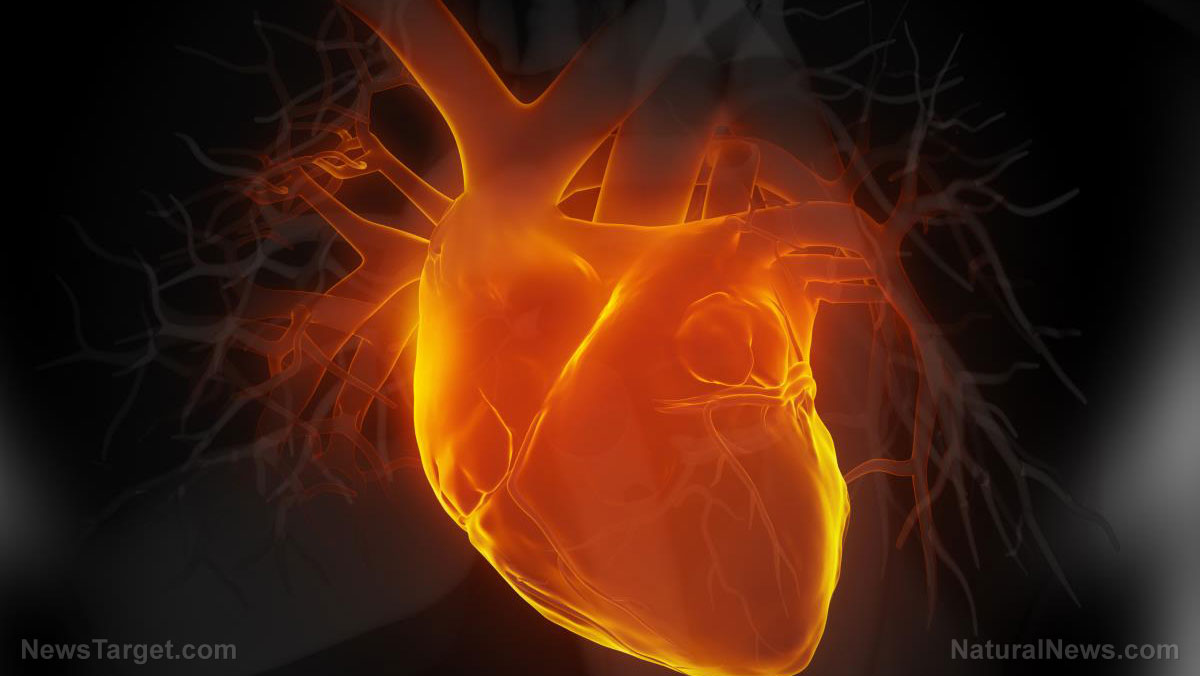High intake of omega-3 found to significantly reduce depression in people with cardiac problems
12/12/2018 / By RJ Jhonson

A fairly recent research confirmed what many have suspected about omega-3 fatty acids: They really are good for the brain. This study, published in the Journal of the American College of Cardiology’s Heart Failure, found that people with a high omega-3 index had a much lower risk of cognitive depression than those who had lower levels of the fatty acids.
In the study, 108 participants with chronic heart failure joined one of three groups. Each group took two grams daily of either a 2:1 milligram (mg) EPA/DHA supplement, a high-EPA product, or a placebo for 12 weeks. Over this period, the participants underwent blood testing to assess their omega-3 index, as well as the red blood cell levels of eicosapentaenoic acid (EPA) and docosahexaenoic acid (DHA), two types of omega-3s. The blood tests were performed before and after supplementation.
The researchers determined that those who took the combination of EPA and DHA had the highest omega-3 index. They confirmed that taking the same dosage used in the study could be enough to raise one’s omega-3 index within three months.
The participants took a short survey regarding their general health. This revealed that those participants who had the highest omega-3 index also had the lowest risk and incidence of cognitive depression. Cognitive depression, one type of depression, is characterized by feelings of sadness and pessimism, as opposed to somatic depression that features feelings of fatigue and trouble sleeping.
Bill Harris, Ph.D., one of the authors of the study, said both EPA/DHA and high-EPA supplements had positive benefits that it was unclear which was better than the other. Noting that the dose used in the study was a preventive more than a treatment measure, he recommended using a higher dose, preferably of the EPA-rich supplement, if the goal is to use omega-3s to treat cognitive depression. DHA, he said, may be better for improving general cognition.
“However, linking higher blood levels of omega-3s to improved depression symptoms in people with both depression and heart failure is encouraging and hopefully leads to better treatment for their conditions,” he said.
Foods rich in omega-3 fatty acids
Increasing your intake of omega-3s is not hard, as long as you include the following foods in your diet:
- Mackerel – These small, fatty fish are rich in omega-3 fatty acids, as well as nutrients like vitamin B12 and selenium that are good for both the brain and the heart. Mackerel is a delicious fish that doesn’t need a lot of fuss to prepare – you can even eat them raw.
- Salmon – Another fatty fish, salmon is one of the best sources of heart-healthy omega-3s. It also contains high levels of protein, selenium, potassium, magnesium, and several types of B vitamins. Aside from being good for your cardiovascular system, eating salmon is also linked to a lower incidence of neurodegenerative disease and mood disorders.
- Herring – Fatty fish, like herring and the aforementioned salmon and mackerel, are highly recommended for people looking to boost their omega-3 intake. Herring is also packed with a lot of vitamin D, vitamin B12, and selenium.
- Oysters – Besides having plenty of omega-3s, oysters are also among the top sources of zinc on the planet. They contain so much that just six or seven of this shellfish gives you six times your recommended daily intake (RDI) of zinc. The same serving also gives you thrice your RDI for vitamin B12 and twice for copper.
- Seeds – Both flaxseeds and chia seeds are popular superfoods, known for their diverse nutritional profiles. Among the health-giving nutrients they provide are omega-3s, although they also contain protein, fiber, and a bunch of other nutrients.
- Walnuts – Nuts are a good source of healthy fats. Notably, walnuts contain omega-3 fatty acids. They also offer high levels of copper, manganese, vitamin E, antioxidant phenols, and other important plant-based compounds.
Learn what omega-3s can do for your heart at brain at Brain.news.
Sources include:
Tagged Under: brain function, brain health, cardiac problem, depression, depression prevention, DHA, heart health, mental health, omega-3 fatty acids, omega-3s, somatic depression, supplements



















